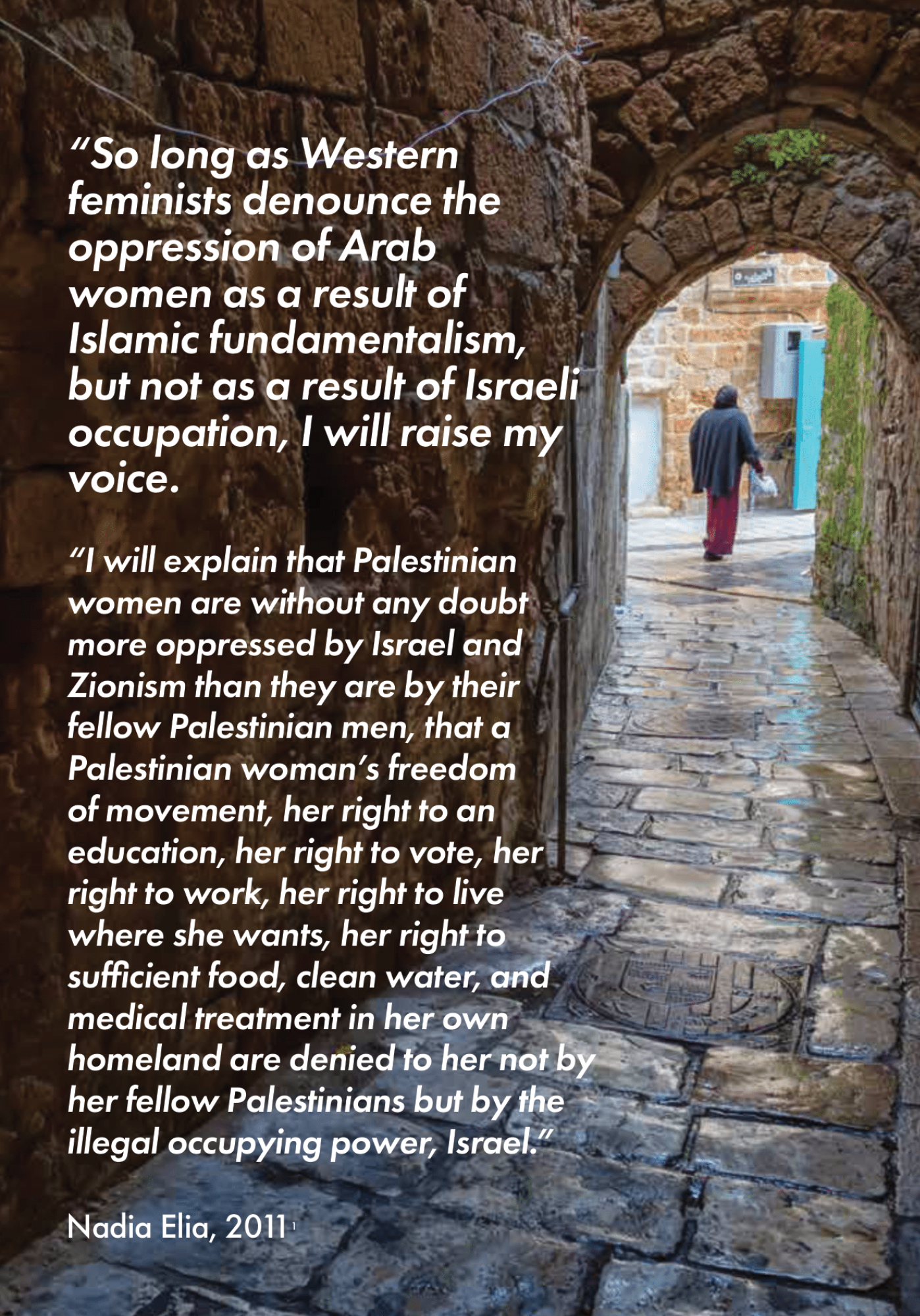3 Reasons Why Palestine is a Feminist Issue
By R.S.
Last November, Palestinian women issued a call to action to feminists across the world, to join the fight against the Gaza genocide. Here’s 3 reasons reasons why Palestine is unequivocally a feminist issue:
Israel frequently subjects Palestinians to sexual violence, especially during arrests and within the prison system. Most recently, prisoners that were released during the ‘humanitarian pause’ in November described being sexually assaulted or threatened with sexual assault. Muslim women detainees were forced to undress or wear clothes that do not conform to their chosen religious code. Videos have also been shared showing mass arrests by Israeli soldiers, in which Palestinian men were stripped and blindfolded and made to stand naked while they were verbally and physically abused and filmed. Feminism understands that sexual violence is rarely just about individual perpetrator and victim. It is a means of asserting power and dominance by and over social groups. Feminism rejects sexual violence in all of its forms.
Palestinian women’s reproductive health is endangered by the apartheid conditions and, much more so, in the Gaza genocide. Reports from UN Women and the UNFPA estimate that nearly half a million women and girls have been displaced in Gaza, 1 in 4 of whom are of reproductive age, around 50,000 are pregnant, and thousands are expected to deliver soon or have delivered during these months.[5,6] The destruction of hospitals and the limited availability of healthcare supplies mean that many women are giving birth or experiencing miscarriages without proper care or anaesthesia. For some, the stress of the living conditions and constant violence are wreaking havoc on their hormones and cycles. For others, the lack of privacy, water, or menstrual products is pushing them to medically delay their menstrual cycle to avoid it altogether. Feminism recognizes that reproductive justice cannot exist without access to reproductive healthcare.
The violence that Israel inflicts upon women and children is a deliberate means of cultural and population control for ethnic cleansing. In the most obvious illustration, Ethiopian women in Israel were given contraceptives without their knowledge or consent. The restrictions in access to reproductive healthcare are not limited to ‘wartime’ – many Palestinian women have given birth at checkpoints or opted for home births for fear of checkpoint delays. These types of practices are woven into the Israeli system as the ethnostate considers the Palestinians a ‘demographic’ threat. Women’s lives are restricted not only as mothers or caretakers, but also as cultural, social, and political contributors. In one example, women’s hair salons disappeared from the West Bank, “Israeli intelligence agents began taking advantage of [the salons’] existence to spike the sweet tea with knock-out drugs, and take nude pictures of women so as to blackmail their husbands into turning collaborator or informant.” This all serves to weaken the Palestinian population and their resistance from the inside out. Feminism fights for the full and free participation of all layers of women in the social, political, economic and cultural spheres.
Nada Elia, “The Burden of Representation: When Palestinians Speak Out”, in Rabab Abdulhadi, Evelyn Alsultany, and Nadine Naber, eds, Arab and Arab-American Feminisms: Gender, Violence, and Belonging (Syracuse, NY: Syracuse University Press, 2011), p. 158.



